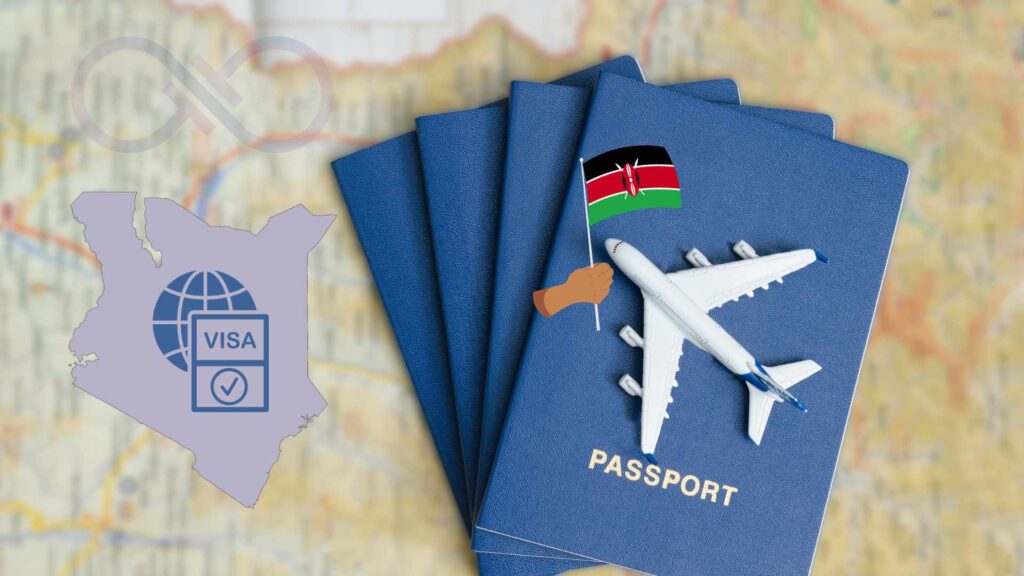Kenya has taken a historic step by abolishing visa requirements for citizens in almost all African and most Caribbean countries. This is a move to change travel, tourism and economic ties in the region. This groundbreaking policy was officially put into effect in July 2025 after the cabinet decision was announced in January 2025, positioning Kenya as a continental hub for business, leisure and cultural exchange.
Key features of the new policy
The revised immigration framework provides several notable changes.
1. Visa-free entry for African citizens
All African countries except Libya and Somalia are currently exempt from visa requirements. Travelers from eligible countries are also unable to arrive at the Kenya border without submitting an electronic travel approval (ETA) application, fill in long forms, or pay visa fees.
2. Duration of stay
Visitors in Africa are permitted to stay in Kenya for up to 60 days without additional steps. Citizens of East Africa Community (EAC) countries hold six months of visa-free stays under existing liberty movement protocols.
3. Wideer Caribbean Access
Most Caribbean countries, including Barbados, Belize, Jamaica, and Trinidad and Tobago, are also covered by visa exemptions. Different outlets collectively refer to “most Caribbean countries,” but specific lists vary and travelers must check eligibility prior to their trip.

4. Enhanced ETA processing for other travelers
Non-African citizens seeking an ETA will benefit from real-time approval or a maximum processing time of 72 hours, depending on system capacity.
Context: From ETA frustration to true visa freedom
Kenya launched the ETA system in January 2024, streamlining admission by shifting tourist visa fees from USD 50 to USD 30. However, the application was required at least three days prior to the trip, which undermined the spontaneity and paid family visits and small traders. Many people perceive ETA as a “visa under another name,” contradicting the previous promise of “visa-free” access and confusion among continental travelers. The new policy directly addresses these shortcomings by eliminating pre-arrival approvals for most African visitors.
The impact of economic and regional integration
By dismantling one of the remaining travel barriers, Kenya is consistent with the objectives of Africa's Continental Free Trade Area (AFCFTA). The expected benefits are:
Tourism Growth
– Increased arrivals at wildlife parks, beaches and cultural festivals.
– Additional revenue streams for hospitality, transportation and local businesses.
Trade and business expansion
– Easy cross-border movements for agricultural, textile and service traders.
– Streamlined plans for conferences, academic exchanges, and research collaboration.
Local leadership
– Centre Kenya's role as a front runner in open sky and Pan-Africa integration initiatives.
– Strengthen diplomatic and economic ties with African and Caribbean peers.
Security Considerations and Exclusions
The exclusion of Libya and Somalia in Kenya arises from ongoing security challenges in these regions. Cabinet has committed to reevaluating these exclusions if conditions were stable. Meanwhile, the government will deploy sophisticated passenger information systems to balance openness with robust pre-screening and border security measures.
Implementation challenges and next steps
While policy overhauls will remove bureaucratic hurdles, Kenya must ensure that immigrant infrastructure can handle increased traffic. Key areas for improvement are as follows:
Border Processing Efficiency: Upgrade to the e-passport gate (E-Gate) and major land intersections at Jomokenyatta International Airport to prevent bottlenecks. Scaling Digital Systems: Expands server and staffing capabilities to ensure instant or proximity ETA approval for non-African travelers. Stakeholder Outreach: Attract airlines, tour operators and local partners, publish new regimes and update travel advisories.
Looking ahead
Kenya's visa-free initiative demonstrates a bold commitment to Africa's unity and global ties. By combining progressive immigration policies with modern border control, countries can set up templates for other African countries that balance openness and security. As implementation progresses, the full impact will be revealed on tourism figures, trade flows and strengthening continental relations.


